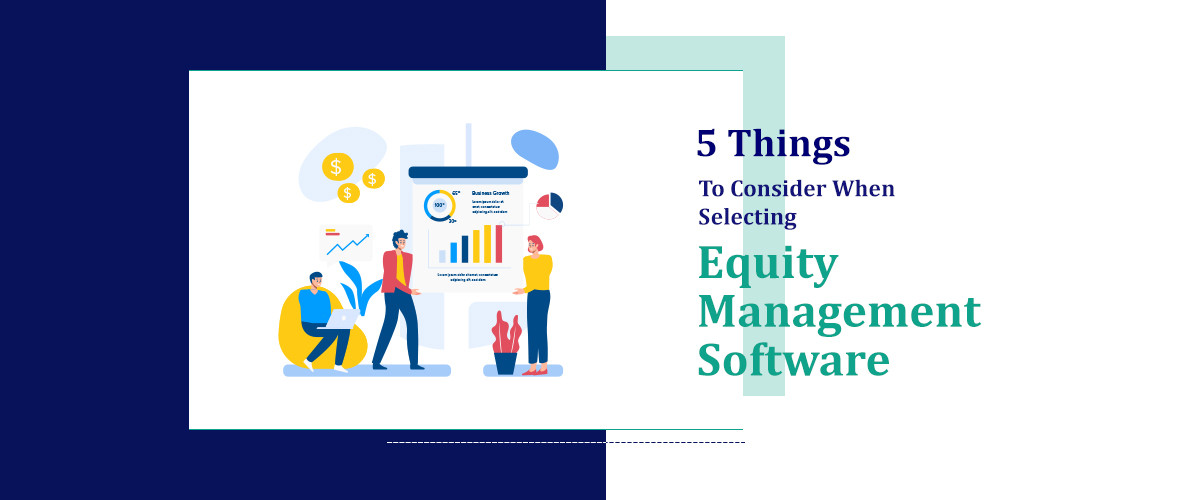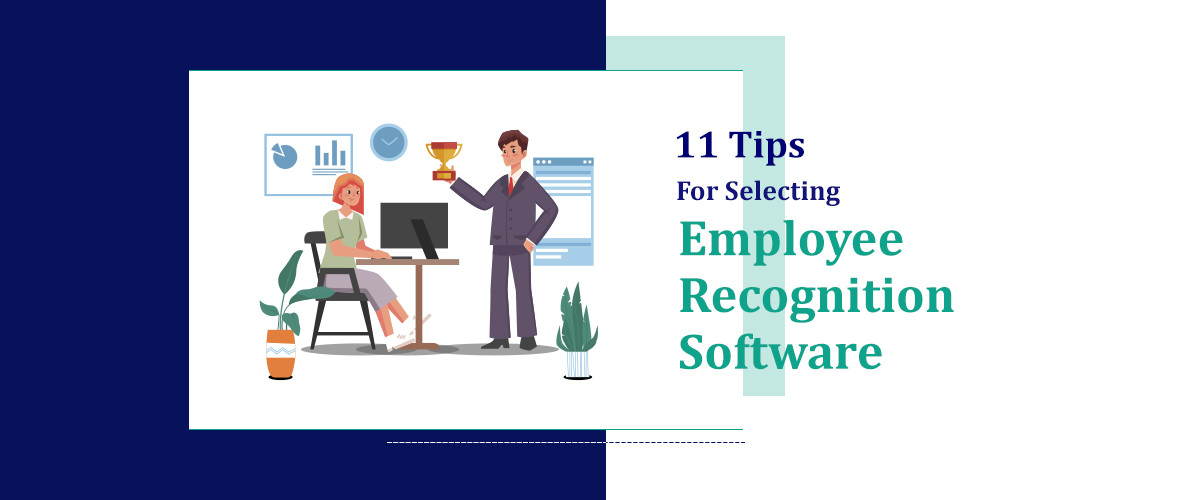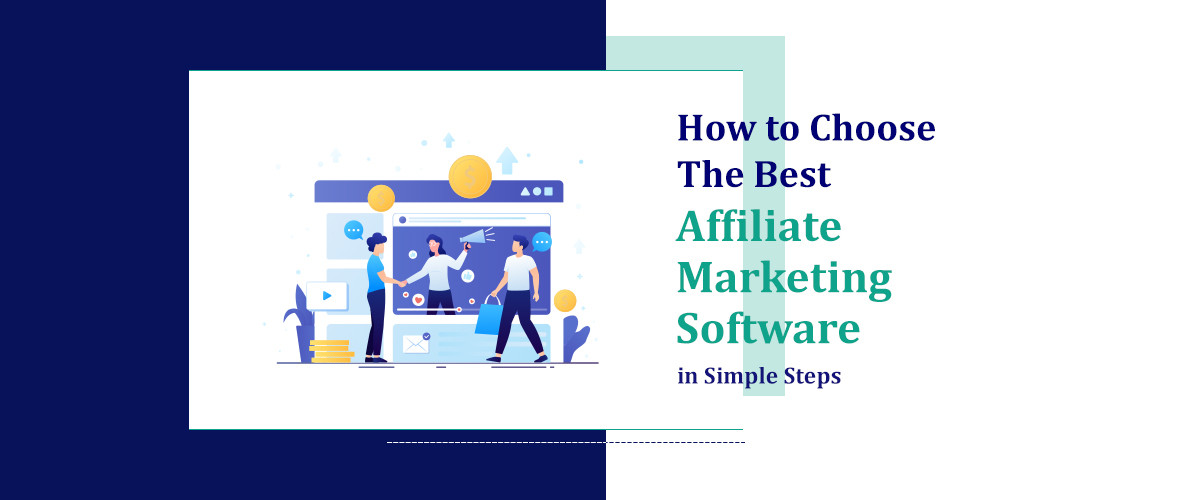What we'll cover
Equity management has become increasingly sophisticated in today's corporate environment. A procedure that was previously quite simple to manage by a single department may now include several stakeholders and complexities that call for a degree of accuracy that manual solutions are just unable to provide.
This is where equity management software comes in to help with process optimization, mistake reduction, and transparent insight into an organization's equity structure. It might be difficult to choose the best equity management software for USA your needs, though, as there are an increasing number of options on the market. Regardless of your background in HR, small business, startup, or otherwise, this in-depth article will lead you through the top 5 criteria to take into account when deciding how to handle equity.
1. Customization for Your Equity Plan
Equity plans are available in a variety of forms, including restricted stock units (RSUs), stock options, and more. Multiple forms of stock issues must be easily supported by your equity management software, not just one.
To begin with, assess how much customization the program permits. Are vesting schedules defined in a way that makes sense for your business? Can you establish several kinds of stock options exercises? To what extent can the software be modified to accommodate the evolving legal framework of equity compensation?
2. Compliance and Reporting Capabilities
Compliance and equity management go hand in hand. The correct software offers strong reporting features for internal and external stakeholders in addition to guaranteeing that all of your stock transactions are compliant with the law.
Seek an automation solution for compliance-related chores such as stock exchange regulations, SOX 404 reporting, and insider trading window management. In-depth reports on employee equity ownership should also be generated by the program, allowing you to make decisions that are in line with the strategic direction of your business.
3. Scalability
Equity management software for USA should adapt to the dynamic nature of your organization. For software to be successful in the long run, it must be scalable, or able to expand with your company.
Think about these inquiries:
-
Can a substantial rise in the number of shareholders be handled by the software?
-
And what happens if you go through an IPO or make an acquisition?
-
To meet new needs, how easy is it to change your software?
It's critical to select a system that can grow to accommodate your present and future demands for equity management.
4. User Experience and Support
Software for equity management that is easy for your team to use is the finest kind. An interface that is easy to use is essential for effective adoption and continued use.
Make a note of the software's onboarding procedure as you examine it. Is the learning curve challenging? Do they offer materials for training?
Analogously, think about the degree of assistance provided by the program provider. Are you going to have a personal account manager? How quickly can you troubleshoot difficulties with them?
Recall that purchasing equity management software involves more than just technology; it also involves people and the assistance they offer.
5. Integration with Other Systems
There is more to an equities management system for USA than meets the eye. It is a compensation management software of the wider ecosystem of systems and technologies that your company uses. As a result, there is no negotiation on seamless integration.
It is recommended that your equity management software be integrated with your payroll systems, accounting software, and HRIS. Ensuring a single source of truth for all systems lowers the possibility of mistakes and does away with the necessity for duplicate data entry.
Don't forget to take data analytics into account while evaluating integration capabilities. Is it simple to import equity data into a BI tool for strategic decision-making?
Selecting a Private Equity Management Software with Integration in Mind
One important thing to think about when choosing private equity management software is how well it integrates with current tools and processes. A platform that is well-integrated guarantees data accuracy, improves decision-making abilities and simplifies operations. It's critical to search for software for the US that interfaces with CRM programs, accounting systems, and other financial software to provide a cohesive solution that minimizes the need for human data entry and lowers the possibility of mistakes. The performance and scalability of private equity operations may be greatly impacted by this all-encompassing approach to system integration.
-
Optimized Operational Effectiveness
Adding private equity management software to current systems can greatly increase operational effectiveness. Employees may focus on more important duties by freeing up crucial time through the automation of data transfer and the elimination of manual entry. This lowers the possibility of human error, which may be expensive in the quick-paced world of private equity in addition to increasing efficiency. Employees may access all pertinent data in one single area with a well-integrated system, removing the need to switch between platforms and lowering the possibility of duplicate data.
-
Precise and Fast Information
For private equity investors to make well-informed investment management software, timely and reliable data is essential. Real-time data is provided by well-integrated software, which guarantees that all systems are updated concurrently and does away with the need for manual data reconciliation. Because of this, research and forecasts can be made with more accuracy, giving private equity companies the confidence to make strategic choices.
-
Enhanced Ability to Make Decisions
Effective integration is also essential for improving a private equity firm's ability to make decisions. Portfolio managers have a complete picture of their assets, including financial data, market trends, and performance measures, because all systems are connected and exchanging information. By using a comprehensive approach to data analysis, total investment returns can be increased through more accurate risk assessment and portfolio optimization.
-
Growth and Scalability
Private equity businesses must have well-integrated management software as their portfolios continue to grow and develop. New investments may be readily accommodated and smoothly incorporated into current processes via an integrated system. Because of its scalability, the software may expand with the company without compromising data integrity or operational effectiveness.
Types Of Equity Management Software
The market is filled with several varieties of equities management software, each of which is made to meet a particular set of requirements. Among these kinds are:
-
Software for Managing Cap Tables
This kind aims to streamline the administration of cap tables so businesses may more easily manage the intricacies of option pools, dilution, and ownership arrangements. Utilizing a comprehensive cap table management guide can further enhance understanding and efficiency in navigating these complexities.
-
Software for Managing Equity Compensation Plans
This software assists businesses in effectively managing stock options, restricted stock units (RSUs), and other equity awards.
-
Software for Managing Investor Connections
This kind aims to improve transparency and strengthen investor relationships by streamlining reporting and communication between businesses and their investors.
-
Software for Equity Analysis and Reporting
This software is designed to give businesses full analysis and greener economy. It allows them to create reports that include equity dilution, value, and other important equity-related indicators.
Software comes in several forms, each with special features and advantages that are meant to make equity management easier and more efficient for businesses at different phases of development.
How To Choose An Equity Management Software
It's important to take several important elements into account when choosing equity management software to make sure the platform will work for you. First, evaluate its usability and integration potential. Processes may be greatly streamlined by having an interface that is easy to use and the capacity to interact with current financial systems. Second, assess the security aspects of the program to protect private financial analysis software for USA. The software's scalability should also be taken into account; it should be able to expand with your company and handle rising complexity. Finally, don't undervalue customer support and training materials; having quick, informed help at your disposal may be quite helpful.
It's crucial to take into account the particular features that will make the program user-friendly for your team when it comes to usability and integration. This might feature drag-and-drop capabilities, simple navigation, and dashboard customization. The degree to which the software interfaces with other tools and systems that your company uses should also be taken into consideration when assessing its integration capabilities.
When selecting equities management software, security is still another important factor to take into account. Strong security measures have to be in place on the platform to guard private financial data and stop illegal access. This might entail frequent backups, safe user authentication procedures, and data encryption.
Conclusion
Selecting the right equity management software is a critical decision for any SaaS adviser operating within the USA. It requires a careful consideration of your specific business needs, data security standards, the software's integration capabilities, customer support quality, and the overall cost of ownership. By prioritizing these factors, you can ensure the selection of a solution that not only meets your current demands but also scales with your business's growth. Remember, the right software is one that not only streamlines the equity management process but also contributes to informed decision-making and strategic planning
Equity management software automates the administration of equity-based compensation plans, such as stock options and grants.
It streamlines equity plan administration, ensures compliance, enhances transparency, and facilitates employee communication.
Look for features like cap table management, grant tracking, reporting tools, compliance management, and integration capabilities.
Scalability varies among providers but look for solutions that can accommodate your company's growth in terms of users, plans, and complexity.
Reputable equity management software should adhere to regulatory requirements like SEC rules for public companies or IRS regulations for tax compliance.




